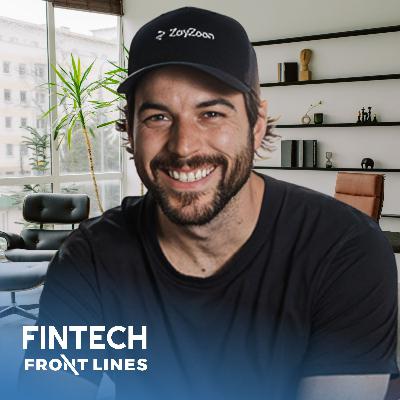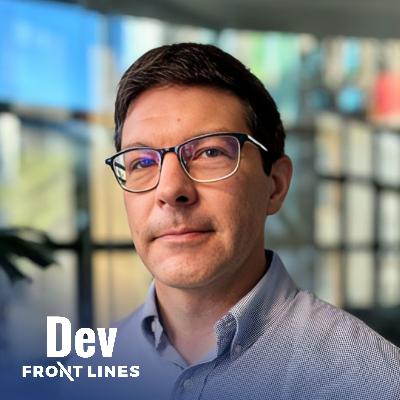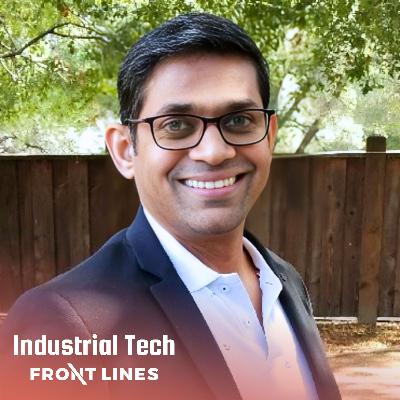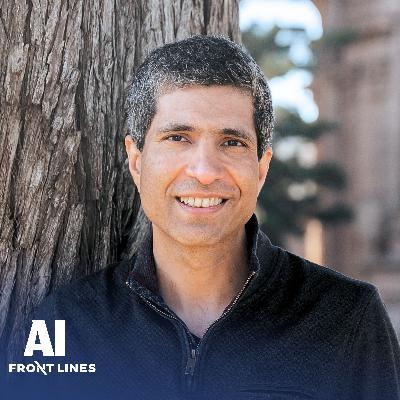How Shush differentiated against competitors by solving business operations, not just deploying technology | Eddie DeCurtis, Co-Founder & CEO of Shush Inc.
Description
With over 30 years in wireless—from helping pioneer intercarrier SMS to running mobile identity operations across Americas and Asia Pacific — Eddie DeCurtis saw what others missed: 967 of 1,000 global mobile network operators lack the infrastructure to monetize CPNI data while protecting customers from fraud. The technical challenge isn't building APIs. It's that operators spent billions on 5G infrastructure and now lack capital, internal expertise, and operational frameworks to launch authentication services. In 18 months, Shush went from PowerPoint to 30 employees, supporting 47 network APIs with full GSMA Open Gateway compliance. Eddie shares how understanding regulatory frameworks by jurisdiction, not just deploying technology, became their competitive moat—and why hiring the executive who built T-Mobile USA's authentication platform gave them credibility no competitor could match.
Topics Discussed:
- Why operators repeatedly said "we want to do it, we have no idea how, we have no money, we don't have a platform"
- Validating the thesis with former AT&T Communications CEO John Donovan before launching
- Securing a POC with a major operator pre-incorporation—with only a PowerPoint deck
- The three-legged stool: technology, network integration, and business operations (where competitors fail)
- Why knowing privacy regulations for CPNI data sharing by country became a deal-closer
- Reducing network integration from dozens of touchpoints to three specific network elements
- Supporting 8 Linux Foundation Camara APIs and TS.43 GBA AKA authentication standard
- Going from 3 to 30 employees and launching at Mobile World Congress on a $75/night Airbnb budget
GTM Lessons For B2B Founders:
- Validate with the person most likely to kill your idea: Eddie deliberately chose John Donovan—former CEO of AT&T Communications, board member at Lockheed and Palo Alto Networks—specifically because "he's going to be rough, he's going to totally ask the really hard questions." When Donovan's response was "go raise $40 million and own this space...you're not going to be alone for long," the validation carried weight because it came from someone incentivized to find fatal flaws. Most founders validate with friendly audiences or investors looking for deals. Find the battle-tested executive who has nothing to gain from being kind.
- Convert pre-product conviction into design partner commitments: Eddie secured a POC agreement with a major operator before Shush incorporated. "I had nothing. I didn't have software. We had an idea, we had a PowerPoint presentation." This only works when you've spent decades building domain expertise and relationships. The lesson isn't "sell vaporware"—it's that deep industry knowledge lets you articulate problem-solution fit so precisely that sophisticated buyers commit before seeing code. Infrastructure founders with 10+ years in-market can accelerate 12-18 months of product-market fit by converting expertise into early design partnerships.
- The enterprise moat is operational knowledge, not technical capability: Eddie's thesis: "Anybody can come up with the technology. You walk down the street in the Bay Area, 10 developers will develop it for you." Shush differentiated by answering questions competitors couldn't: How do you price SIM swap detection per query? What are CPNI data sharing regulations in Indonesia versus Brazil? How do you navigate internal stakeholder alignment across legal, privacy, and regulatory teams at a tier-one operator? When Eddie told an operator "here's the privacy rules for your country" after they admitted "I have no idea," he closed a knowledge gap that pure technology vendors can't fill. In regulated infrastructure markets, execution expertise beats technical superiority.
- Target the ambition-capability gap in capital-constrained buyers: Operators told Eddie the same story: eager to launch authentication services, zero clarity on execution, budgets decimated by 5G spending. This created perfect conditions for a full-stack solution. "Mid-market is hard because you have a buyer with problems that are not basic anymore, but they lack the ability to execute." Shush didn't sell point solutions—they delivered technology, integration, and business operations as a turnkey package. Identify buyers with sophisticated needs, strong intent, and constrained internal resources. That's where full-stack platforms win over point tools.
- Hire the operator who ran your exact use case at scale: Eddie cold-called John Morrowton, who "built this actual product and service offering at T-Mobile USA, from its inception to its execution and ran it for four years." His pitch: "I'm Eddie DeCurtis, how are you? You want a job? You're Chief Product Officer." Hiring someone who'd operationalized authentication services at a tier-one carrier gave Shush instant credibility with operator buyers and compressed years of trial-and-error into institutional knowledge. In infrastructure sales, hiring executives from reference customers eliminates "can you actually do this" objections before they surface.
- Minimize integration surface area to accelerate deployment: Mobile operators run highly secure networks with limited external access points. Shush "narrowed it down to three network elements that we can communicate with to provide all 47 APIs." Fewer integration points means faster deployment, lower implementation risk, and reduced operator IT overhead. This architectural decision became a sales accelerator. Infrastructure founders: identify the minimal viable integration that unlocks maximum API coverage, then make that your differentiated deployment story.
//
Sponsors: Front Lines — We help B2B tech companies launch, manage, and grow podcasts that drive demand, awareness, and thought leadership. www.FrontLines.io
The Global Talent Co. — We help tech startups find, vet, hire, pay, and retain amazing marketing talent that costs 50-70% less than the US & Europe. www.GlobalTalent.co
//
Don't Miss: New Podcast Series — How I Hire Senior GTM leaders share the tactical hiring frameworks they use to build winning revenue teams. Hosted by Andy Mowat, who scaled 4 unicorns from $10M to $100M+ ARR and launched Whispered to help executives find their next role.
Subscribe here: https://open.spotify.com/show/53yCHlPfLSMFimtv0riPyM
























